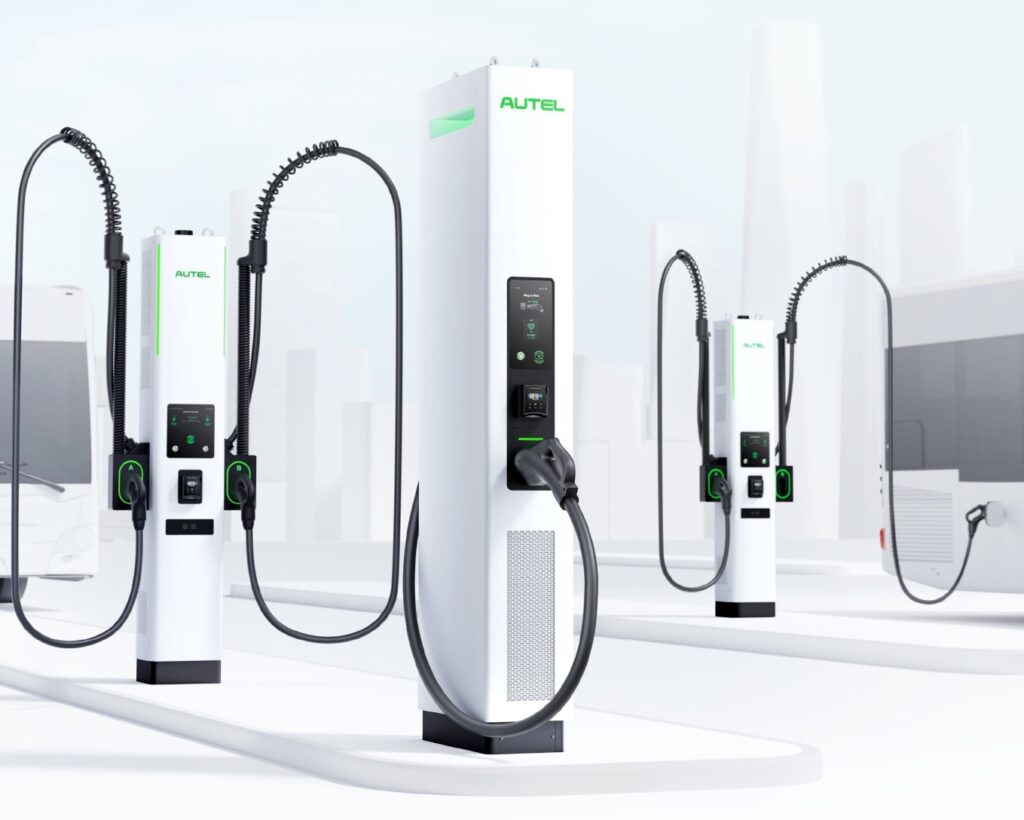Why OCPP Is Crucial for EV Charging Infrastructure
As the world transitions quickly to electric vehicles (EVs), the infrastructure supporting this shift must be efficient, reliable, and scalable. At the heart of modern EV charging networks lies the Open Charge Point Protocol (OCPP), a standardized communication protocol used globally that enables seamless interaction between charging stations and central management systems. It recently became an International Electrotechnical Commission (IEC) standard (version 2.0.1) which will give many markets some flexibility in how they adopt it, as participants in the market can point to a standards body they’re affiliated with, and adopt directly.
OCPP enables robust network management capabilities, including remote monitoring, user authentication and cost recovery, energy management, diagnostics, and firmware updates. These features improve the reliability and uptime of charging stations, ensuring a better user experience for EV drivers. For instance, if a charging station experiences an issue, the network operator can diagnose and often resolve the problem remotely, minimizing downtime.
OCPP Offers Interoperability and Vendor Independence
OCPP ensures that charging stations from different manufacturers can communicate with a management platform regardless of the vendor. This interoperability is crucial for creating a diverse, competitive EV charging market. Without OCPP, charging network operators would be locked into proprietary systems, limiting flexibility and potentially increasing costs.
For example, a network operator managing hundreds of chargers can integrate hardware from multiple manufacturers without worrying about compatibility issues. This flexibility also benefits EV drivers, who can access charging stations from various providers without needing multiple accounts or apps.
Cost-Effective Scalability
By standardizing communication, OCPP reduces the complexity and cost of expanding EV charging networks. Network operators can mix and match hardware and software solutions, avoiding vendor lock-in and fostering innovation. This cost-efficiency is particularly important for large-scale deployments, such as those in cities or commercial fleets.
With OCPP, adding new charging stations to an existing network is straightforward, as the protocol ensures they can communicate effectively with the central system. This scalability supports the rapid growth of EV adoption worldwide.
Future-Proofing and Innovation
As EV technology evolves, so do the requirements for charging infrastructure. OCPP’s open and flexible nature makes it easier to incorporate new features and advancements, such as dynamic load management, integration with renewable energy sources, and vehicle-to-grid (V2G) capabilities.
By adopting OCPP, network operators and manufacturers can future-proof their investments, ensuring compatibility with emerging technologies and regulatory requirements. This adaptability is essential for staying ahead in the rapidly changing EV landscape.
Security and Reliability
OCPP includes a variety of robust security features to protect communications and charging infrastructure from cyber threats. In an era where cybersecurity is a top concern, OCPP’s continual, open development towards robust, secure charging builds trust among users and stakeholders. Reliable and secure charging networks are critical for encouraging EV adoption and supporting the broader transition to sustainable transportation.

Where Leading Companies Stand on OCPP Support
The electric vehicle (EV) charging industry is undergoing a transition towards adopting open standards, particularly the Open Charge Point Protocol (OCPP). However, the shift is not universal, with several prominent players still relying on proprietary communication protocols for their charging networks.
Tesla, for example, is one of the most notable companies that does not fully support OCPP. Its Supercharger network uses a proprietary system that limits interoperability with other OCPP-compliant charging stations. While Tesla has started to open its Supercharger network to non-Tesla vehicles in some regions, its charging infrastructure remains largely isolated due to this proprietary approach.
In China, manufacturers like BYD, NIO, and Wuling also predominantly rely on local standards and proprietary solutions. These companies have focused on their domestic markets, where OCPP adoption is less common, but they are gradually expanding to international markets. As they venture into regions where OCPP is more widely adopted, these companies may eventually embrace open standards, although for now, their charging systems remain largely disconnected from the global OCPP ecosystem.
Companies such as Keba and Wallbox provide OCPP-compatible models, but their adoption of the protocol is selective. While they offer some OCPP-compliant charging stations, not all of their products guarantee compatibility with the open standard. This selective adoption indicates that while these companies recognize the importance of OCPP, they may still prioritize proprietary elements in certain configurations or markets.
Similarly, companies like EVgo and Siemens do offer OCPP support in some cases, particularly for public and commercial charging stations. However, they also incorporate proprietary elements into certain models, which can limit the full interoperability that OCPP promises. These proprietary components may be a way to maintain control over their infrastructure or to optimize their networks in ways that aren’t always compatible with open standards.
The overall trend in the EV charging industry is a move toward greater OCPP adoption, particularly as the demand for public and commercial charging stations grows. OCPP promotes interoperability and scalability, which are crucial as the global EV market expands. However, proprietary solutions remain prevalent, especially in fast-charging networks and regional markets that have yet to fully embrace open standards. As the industry continues to evolve, it is expected that OCPP will become more widespread, but for now, a mix of open and proprietary systems remains in place.

Autel’s Dual OCPP Connections Improve Reliability
In my analysis of all current charging hardware and use of OCPP, I’ve found Autel has the best use of OCPP. The company’s use of dual OCPP is an absolute game-changer.
EV charging reliability is an important and widespread problem in the EV Charging industry. Autel’s dual OCPP connections make tracking down problems easier. Dual OCPP connections in Autel equipment means that both Autel and the network software provider can find error codes when a charger is inoperable, to determine the cause of the problem. Many charging OEMs don’t offer dual OCPP connections, which makes tracking down a problem much more difficult. In cases like those, frequently the software provider and hardware provider have to go back and forth with each other to track down a problem. This makes Autel’s chargers far more reliable with less downtime, as problems are fixed sooner, typically with one truck roll instead of several.
Autel hardware supports OCPP 2.0.1, a significant advantage as most other existing hardware on the market will not be able to support the transition from OCPP 1.6 to 2.0.1 when the change occurs. The chipset and hardware within Autel’s chargers are designed to support both OCPP 1.6 and 2.0.1, making them future-proof and adaptable to evolving industry standards. For Charging Point Operators (CPOs) and networks that eventually transition to OCPP 2.0.1, there will be a substantial amount of outdated hardware in the market that will need to be replaced due to its incompatibility with the new standards.
Autel’s hardware is fully OCPP compliant and certified by the Open Charge Alliance (OCA), ensuring its adherence to recognized industry standards. In contrast, some companies, like ChargePoint and Tesla, claim to support open OCPP, but their hardware is proprietary and can only be used within their own networks. This misrepresentation often misleads customers who may later want to switch hardware providers, only to find they are unable to do so due to the locked-in nature of these proprietary systems.
Autel conducts in-house testing with all third-party networks it integrates with to ensure that all OCPP messages are correctly mapped between its hardware and the software backends of these networks.
Why OCPP is Important
The Open Charge Point Protocol is more than just a communication standard; it is a cornerstone of modern EV charging infrastructure. By enabling interoperability, reducing costs, enhancing network management, and supporting innovation, OCPP plays a pivotal role in the global shift toward electrified transportation.
As EV adoption accelerates, the importance of OCPP will only grow. Governments, network operators, and manufacturers must prioritize its implementation to create a cohesive, efficient, and user-friendly EV charging ecosystem. In doing so, they can ensure that EV drivers have access to reliable, accessible, and future-proof charging solutions, driving the transition to a cleaner, greener future.

Electric Vehicle Marketing Consultant, Writer and Editor. Publisher EVinfo.net.
Services